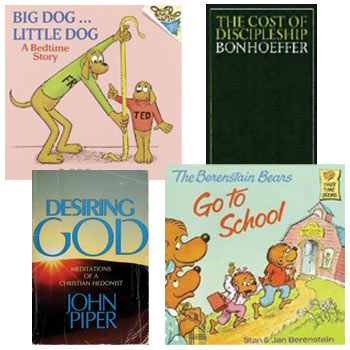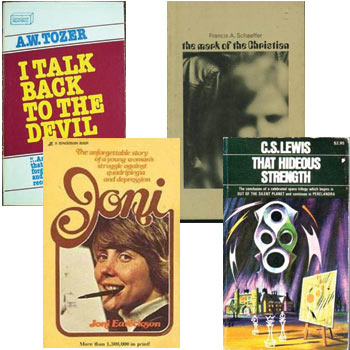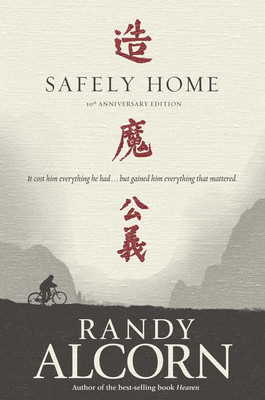 I thought Kevin DeYoung’s post about “real books” (which I’ve included part of below) was interesting. I enjoy reading on my Kindle and iPad, and I love e-books, and haven’t given up on them, and doubt I ever will. But I still buy more printed ones, especially for research. If I believe I’m going to go back to the book, not just read it once, I tend to buy the printed version, which I mark up in a way that doesn’t work for me in the e-book equivalents to “making it my own.”
I thought Kevin DeYoung’s post about “real books” (which I’ve included part of below) was interesting. I enjoy reading on my Kindle and iPad, and I love e-books, and haven’t given up on them, and doubt I ever will. But I still buy more printed ones, especially for research. If I believe I’m going to go back to the book, not just read it once, I tend to buy the printed version, which I mark up in a way that doesn’t work for me in the e-book equivalents to “making it my own.”
I like what Kevin says about the history of certain books on the shelf. I like the different look and feel, even the bent up covers. I have books I read as a young Christian in high school, then in college, others as a young pastor. There are books I read to my daughters when they were three or five or seven. They are indeed like “old friends.” (The covers I’ve included in this post are some that bring back memories for me.)
 The books on my shelves convey a physical nostalgia, not just of content and characters, but of the book itself. Sometimes I remember where I bought them and read them. I look at the dates inside, occasionally finding a stray note or phone number. Sometimes even their smell is familiar. And when I buy used books, which I often do, I like to see other people’s names and the words they’ve underlined, reminding me that the book has a history, and now I have entered into that history.
The books on my shelves convey a physical nostalgia, not just of content and characters, but of the book itself. Sometimes I remember where I bought them and read them. I look at the dates inside, occasionally finding a stray note or phone number. Sometimes even their smell is familiar. And when I buy used books, which I often do, I like to see other people’s names and the words they’ve underlined, reminding me that the book has a history, and now I have entered into that history.
None of that is a criticism of e-books. Their advantages are unique, and so are those of printed books. I thank God that I live in a time where we can choose between them, and enjoy them both.
Why I Hope Real Books Never Die (and They Won’t)
by Kevin DeYoung
I have tried to get into ereaders. Really I have. First, someone was kind enough to give me a Kindle. It seemed pretty cool at first. I could download books instantly. I didn’t have to weigh down my carryon bag when traveling. What a treat.
I read two books on my Kindle and got tired of it.
 Then I tried reading books on my iPad, definitely a better reading experience in my opinion. I prefer the white page and back lit screen over the electronic ink. It was exciting to think (again) that from now on I could purchase most books whenever and wherever I wanted to. I could buy something new while on vacation. I could finish something in the airport and get a new book right from my seat, without having to lug around any extra pounds. The iPad even allows you to flip the page with your finger just like the real deal. What a gift.
Then I tried reading books on my iPad, definitely a better reading experience in my opinion. I prefer the white page and back lit screen over the electronic ink. It was exciting to think (again) that from now on I could purchase most books whenever and wherever I wanted to. I could buy something new while on vacation. I could finish something in the airport and get a new book right from my seat, without having to lug around any extra pounds. The iPad even allows you to flip the page with your finger just like the real deal. What a gift.
I read two books on my iPad and got tired of it.
Perhaps I am a wishful thinking bibliophile, but I just don’t think the physical book is going the way of the dodo bird. No doubt, many scholars and students will house parts of their reference libraries on an electronic device. Some frequent flyers will stick books on their tablets instead of in their brief cases. And some techno-geeks will conclude that everything is better on an Apple product. I’m sure ereaders will make inroads. They serve a useful purpose. But only to a point.
Old books are like old friends. They love to be revisited. They stick around to give advice. They remind you of days gone by. Books, like friends, hang around.
And they prefer not to be invisible.
Read the rest of Kevin’s post.
Photo by Iñaki del Olmo on Unsplash





